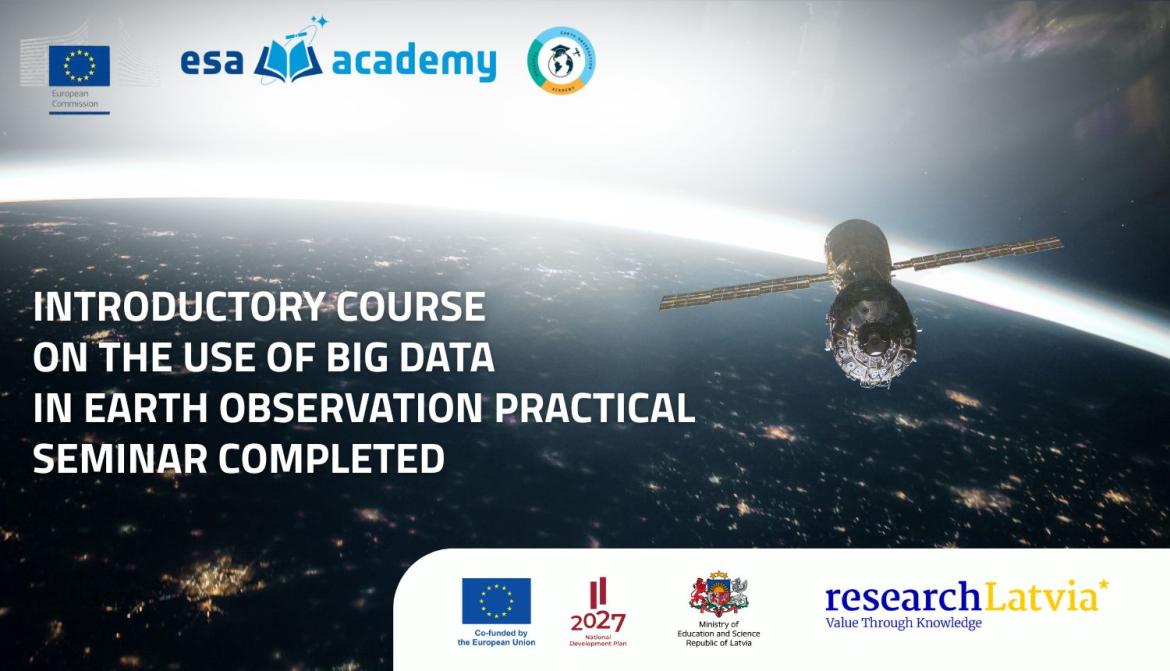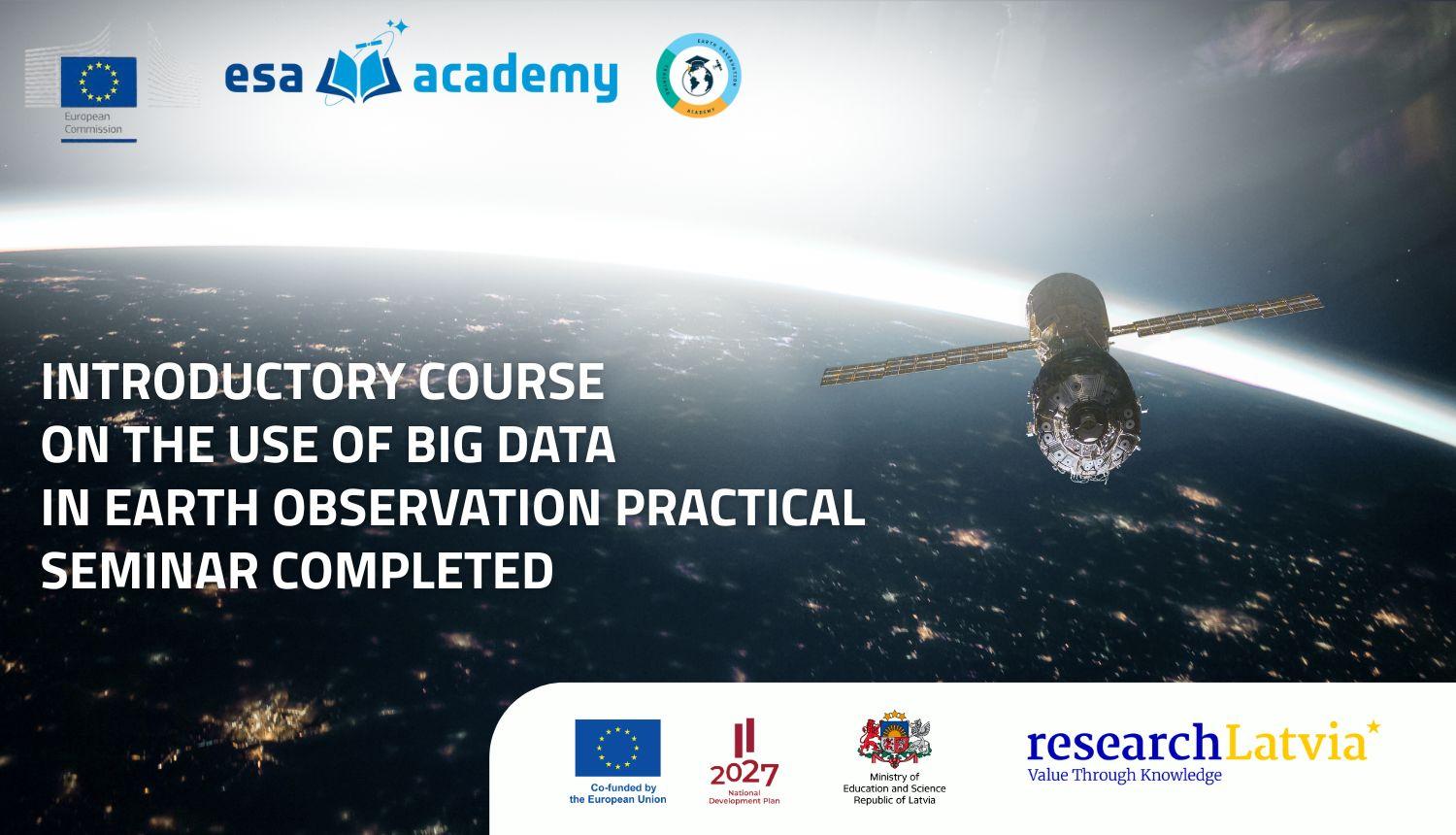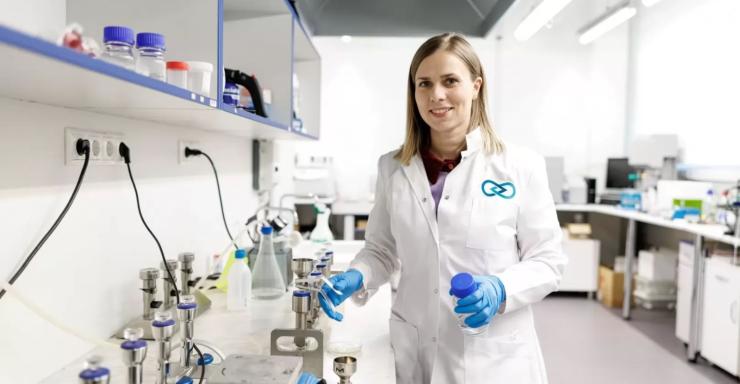From 22 to 26 September, at the University of Latvia’s House of Nature, the European Space Agency (ESA) and the Ministry of Education and Science of Latvia organized the “Big Data Foundations for Earth Observation Training Course”. The course provided fundamental knowledge and practical skills in working with satellite data, processing it, and applying it in environmental research and innovation development.

Over the course of five days, more than 40 participants from various European countries – including representatives of Latvian institutions and organisations, researchers, academics, doctoral students from the Baltic states, as well as industry representatives and startups – gained new knowledge and strengthened their competencies in the use and commercialisation of Earth Observation data.
"The training offered a comprehensive 360° perspective on today’s Earth Observation Big Data ecosystem – from the satellites and sensors that monitor our planet, to the technologies, platforms, and advanced data processing methods that turn observations into value-added solutions. By combining science, technology, and business, the course demonstrated how Earth Observation data fosters innovation and societal development," emphasised Anca Anghelea, ESA Open Science Platform Engineer.
During the course, participants learned about the basics of Earth Observation and the application of big data in relation to the European Green Deal and security issues. The program covered data processing methods, Python applications, cloud-based work, and the FAIR data principles (findability, accessibility, interoperability, reusability). It also introduced artificial intelligence and machine learning tools for Earth Observation data.
“This training is a significant opportunity for the Baltic states. By bringing world-class Earth Observation experts to Riga, we strengthen regional capacity, support educators, and inspire the next generation of researchers and innovators,” said Kaspars Karolis, Head of the Latvian Delegation to ESA and Space Industry Expert at the Ministry of Education and Science.
Participants were also introduced to emerging technologies, including quantum computing, upcoming missions, and the applications of artificial intelligence in devices. A dedicated section of the course focused on business and innovation topics, including the support opportunities of the ESA Business Incubation Centre and startup success stories.
The course applied the “train-the-trainer” principle, which, in the long run, strengthens educational capacity in the Baltics and lays the foundation for continued cooperation among education, science, and industry.
ESA experts and representatives of academic institutions from several European countries, including Austria, Finland, and Italy, delivered the training. Among the participants were specialists from the University of Latvia, Riga Technical University, Latvian State Forests, the Latvian Environment, Geology and Meteorology Centre, the Institute for Environmental Solutions, the State Environmental Service, the Rural Support Service, the State Fire and Rescue Service, AS Sadales tīkls, the Latvian Geospatial Information Agency, and other organisations.
The ESA Academy awarded five scholarships to PhD students to cover travel and accommodation expenses.
The course was organised within the framework of the MES project No. 1.1.1.1/1/24/I/001 “More Effective and Smarter Implementation and Management of Latvia’s Science Policy.”



